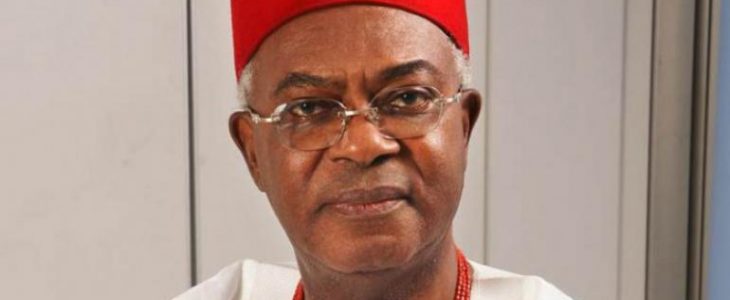
The Obi of Onitsha, His Majesty Nnaemeka Achebe, has called for the restoration of Onitsha’s past glory as Nigeria’s leading industrial, commercial, educational, and cultural city, alongside the establishment of the Onitsha Development Authority.
His Majesty made this appeal during the maiden edition of the Obi Nnaemeka Achebe Annual Public Lecture Series, which examined Igbo culture, traditions, and values and their implications for the people. A statement signed by Ike Akatakwuani, Chief of Staff of the Ime-Obi Onitsha Traditional Council, Chief Osita Anionwu, confirmed this.

In his lecture, titled “Onitsha Traditional Society – Origin, Spread, Culture,” delivered at Nnamdi Azikiwe University, Awka, the monarch underscored the need for a deeper understanding of Igbo history and culture, including clarifying the linkages among the Igbo, Yoruba, and Edo people.
The lecture identified four critical areas requiring urgent attention. His Majesty called for a definitive determination of the ancestral connections among the Igbo, Yoruba, and Edo language groups, emphasising its significance for positioning in contemporary Nigeria.

He remarked: “The search for Igbo history as a necessary pedestal to anchor the history of Onitsha presented three alternative versions for Igbo origin, namely: the Autochthony, the Internal Migration, and the External Migration Hypothesis.” He added, “The two migration hypotheses suggest the possibility that the Igbo, Yoruba, and Edo language groups, among others, shared a common ancestral root before diverging and developing distinct languages and dialects.”
The lecture further interrogated the authenticity of the book “Adona-Idu, History of Igbo Origin” by B.O.N Eluwa and its hypothesis regarding the ancient kingdom of Ado-na-Idu, including the Igbo’s migration and influence in Ile-Ife, described as the ancestral capital of Ado-na-Idu.
The monarch also highlighted the need to strengthen the relationship among descendants of Eze Chima, the central figure in the founding of Onitsha Ado N’Idu, and neighbouring communities along the River Niger. He emphasised the importance of authenticating the folk histories of Umu Eze Chima and understanding the varying accounts of Eze Chima’s lineage.
“Broadly,” the Obi noted, “Eze Chima’s ancestors were either part of the Igbo migration out of Ile-Ife that sojourned in Benin, or he was a direct descendant of Oba Eweka I and Oranmiyan, or he had no ancestral connection to Benin or Yoruba but rather descended from the Nri civilization.”
The monarch also explored Onitsha culture, governance, and its traditional justice system. Reflecting on the transformation journey he initiated in 2002, which incorporated modern management and leadership principles, he stressed the urgency of addressing the deterioration of Onitsha and neighbouring areas.
According to him, “While the Onitsha indigenous community continues on its journey of transformation, it is urgent for the government to take measures to address the decay in the greater Onitsha metropolis and restore its past glory as a leading industrial, commercial, educational, and cultural city in Nigeria. The establishment of a Greater Onitsha Development Authority is imperative.”
The lecture was attended by dignitaries from across the country, including academics, traditional rulers, and government officials. It marked a significant step in the promotion of Igbo culture, traditions, and values.
A highlight of the event was the laying of the foundation stone for the Obi Nnaemeka Achebe Dome, which will house the World Centre for Igbo Repository.
Credit: The Suñ
